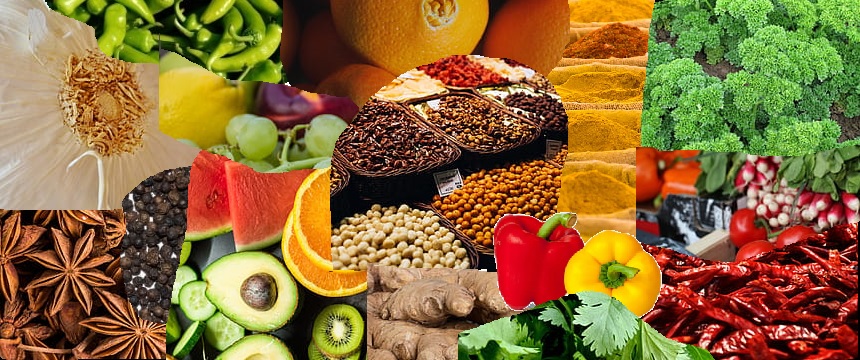Ayurveda is an ancient Indian system of alternative healing that is becoming increasingly popular all over the world, as we discussed in Ayurveda in a nutshell.
It is mentioned in Ayurveda that we are born with a unique constitution (or “nature”, or more aptly “dosha”). This constitution is nothing but a certain “balance” between various biological energies. Our environment, our diet, our thoughts and actions, and our lifestyle all should be in harmony with this constitution for us to enjoy good health. Living in an environment or eating a diet that does not agree with our constitution will disturb the balance of energies in our constitution and may make us feel sick.
One way an Ayurvedic practitioner can restore our health is to tweak our diet by incorporating or excluding various herbs and spice
Herbs, spices, vegetables, and fruits are a very important part of our diet. Apart from providing flavor, color, aroma, and preservative properties to our food, herbs, and spices have important medicinal value too. As is widely known, free radicals in our bodies cause damage to body cells and tissues. Our body tries to neutralize this damage with antioxidants but at times is unable to keep up with the production of free radicals. This damage further leads to various other diseases and disorders. Herbs and spices are major sources of antioxidants that help the body combat this “oxidative stress” more effectively.
Apart from antioxidant properties, herbs and spices also have a positive effect on the immune system, they help in the reduction of inflammation and have anti-bacterial, anti-diabetic, anti-carcinogenic, and anti-viral properties. Infact, in many tribal areas of India, people use plants (in various forms) to treat cuts, wounds, burns, and even animal bites.
To familiarize our readers with the popular herbs and spices, below is a brief description of them.

Asafoetida (Hing)
Typical asafoetida contains resin, endogeneous gum, volatile oil, and ash. Asafoetida improves digestion and helps in the treatment of bloating, gas, and asthma. It controls cholesterol and acts as a blood thinner.
Bay Leaf (Tej Patta)
Bay Leaf is a rich source of vitamins (A and C) and minerals. It has antiseptic, antioxidant, and anti-cancer properties.
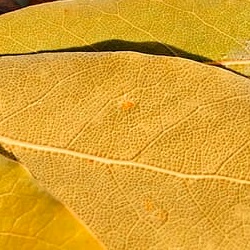
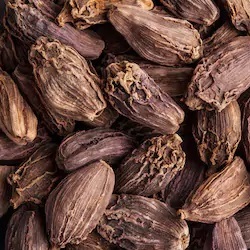
Black Cardamom (Badi Elaichi)
Black cardamom contains essential oils, vitamin C, and minerals (potassium, calcium, iron, copper, manganese, and magnesium). It has antiseptic and antioxidant properties. It is good for the skin, keeps the internal system free from toxic materials, and improves blood circulation.
Black Pepper (Kali Mirch)
Black Pepper contains essential oils, vitamins (A, C, E, K), and minerals (calcium, copper, iron, magnesium, and manganese). It has antioxidant, antimicrobial, anti-inflammatory, carminative, and anti-flatulent properties. It is helpful in the prevention and treatment of several cancers. Black pepper also assists in cognitive brain functioning, boosts nutrient absorption, and improves gastrointestinal functionality
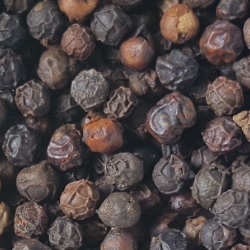
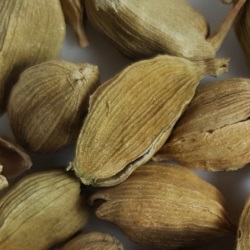
Green Cardamom (Chhoti Elaichi)
Green Cardamom contains essential oils, vitamins, and minerals. It helps improve appetite and digestion and helps in various conditions such as heartburn, diarrhea, constipation, liver, and gallbladder. It also assists in common colds, coughs, bronchitis, urinary issues, headache, and high blood pressure.
Carom Seeds (Ajwain)
Carom Seeds contain fiber, vitamins, and minerals. Carom seeds have antioxidant, antibacterial, and antifungal properties. Carom seeds improve digestion, and give relief from acidity, common cold, toothache, and pain in the ears. They also give relief to asthma.
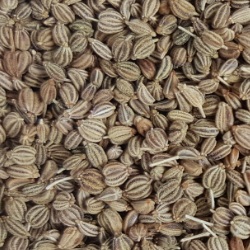

Cinnamon (Dal Chini)
Cinnamon is a good source of calcium, iron, and vitamin K. It has antioxidant, antimicrobial, anti-inflammatory, and anti-diabetic properties. Cinnamon lowers blood pressure.
Cloves (Laung)
Cloves provide fiber, manganese, vitamin C, and vitamin K. Cloves have antioxidant, antimicrobial, and anti-inflammatory properties. Cloves help prevent constipation, improve the immune system, help in stronger bones, and regulate blood pressure. Cloves are highly effective in containing the damage from free radicals and as such prevent many diseases. Cloves have anti-cancer properties.
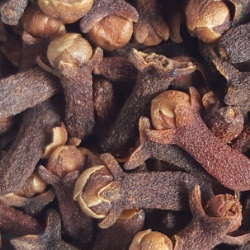
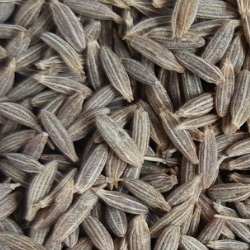
Cumin Seeds (Jeera)
Cumin seeds are a source of dietary fiber, vitamins (A, B-6, C, E), and minerals such as calcium, copper, iron, and magnesium. Cumin seeds have antioxidant and antimicrobial properties. They help in weight loss, diabetes management, bowel syndromes, and improve cholesterol.
Fennel Seeds (Saunf)
Fennel seeds contain dietary fiber, vitamins (A, B-complex, C, E), and minerals such as copper, iron, calcium, potassium, manganese, selenium, zinc, and magnesium. These seeds have antioxidant, anti-cancer, and antimicrobial properties. They help in slowing the aging process and also in degenerative neurological diseases. They improve digestion and constipation. Lower bad cholesterol.
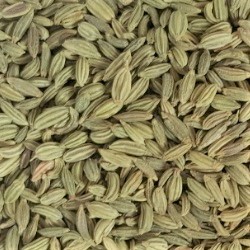
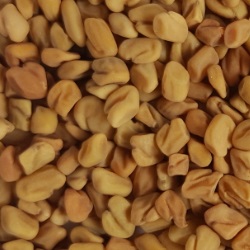
Fenugreek Seeds (Methi Dana)
Fenugreek seeds are a rich source of protein, fiber, omega-3 fatty acids, vitamins, and minerals. The seeds have antioxidant, antibacterial, and antidiabetic properties. The seeds protect against cancer and help in indigestion, constipation, and reduction in cholesterol.
Mace (Javitri)
Mace is a source of essential oils, minerals (iron, calcium), and vitamins (A, C). It has antioxidant, antimicrobial, anti-fungal, and anti-depressant properties. Mace oil is used in the treatment of joint pains. Mace is also useful in gastritis and constipation.
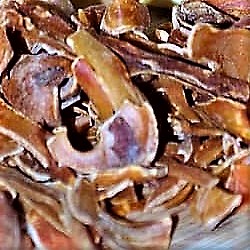
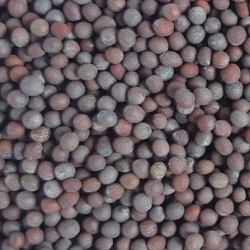
Mustard Seeds (Rai)
Mustard seeds are a source of essential oils, dietary fiber, vitamins, and minerals. They contain vitamins A, B, and C, omega-3 fatty acids, and several minerals such as calcium, copper, manganese, magnesium, phosphorus, potassium, and selenium. Mustard seeds have antioxidant, anti-cancer, anti-inflammatory, anti-bacterial, and anti-fungal properties. Mustard seeds can help lower cholesterol.
Nutmeg (Jaifal)
Nutmeg is a source of essential oils, minerals, and vitamins. Nutmeg has antioxidant and antimicrobial properties. It is anti-inflammatory and reduces joint pains. It relieves stress and manages blood pressure. Also helps in various bowel syndromes.

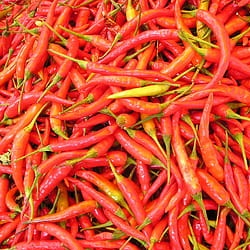
Red Chilies (Lal Mirch)
Red chilies contain vitamins (A, B, and C), and minerals such as potassium, manganese, iron, and magnesium. Chilies have antioxidant, anti-bacterial, anti-diabetic, anti-carcinogenic, and analgesic properties. Chilies help reduce cholesterol and arthritic pain.
Saffron (Kesar)
Saffron contains, vital oils, vitamins A and C, and minerals such as copper, potassium, calcium, manganese, iron, selenium, zinc, and magnesium. Saffron has antiseptic, antioxidant, and anti-depressant properties. It helps in the prevention and treatment of several cancers, including lung, liver, breast, stomach, colorectum, cervix, and prostate cancers.
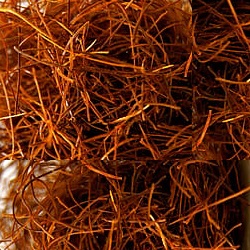
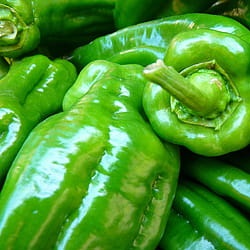
Capsicum (Shimla Mirch)
Capsicum contains vitamins A, B-6, C, and E, and minerals. Additionally, they contain fiber. Capsicum has antioxidant, anti-bacterial, anti-diabetic, anti-carcinogenic, and analgesic properties. It also reduces blood cholesterol.
Onions (Pyaaz)
Onions are a rich source of vitamins A, B-complex, and C, and various minerals. Onions possess antioxidant, anti-cancer, antimicrobial, and antidiabetic properties. Onions protect from cancer and help in the reduction of blood pressure and cholesterol. Onions reduce the risks of heart disease.
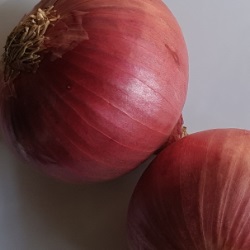
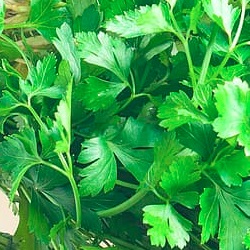
Coriander (Hara Dhania)
Coriander contains good amounts of antioxidants, essential oils, vitamins (A, C, K), and minerals. Coriander has antiseptic, antioxidant, and carminative properties. It reduces bad cholesterol. It improves vision and provides protection against some cancers.
Curry Leaves (Kari Patta)
Curry leaves are a rich source of carbohydrates, fiber, calcium, phosphorous, iron, and vitamins like vitamin A, vitamin B, vitamin C, and vitamin E. Curry leaves help in controlling diabetes, improving digestion, lowering cholesterol, and improving the health of hair.

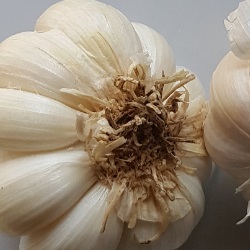
Garlic (Lehsun)
Garlic is a rich source of antioxidants, vitamins, and minerals. Garlic possesses antioxidant, anti-cancer, antimicrobial, anti-diabetic, anti-inflammatory, and anti-thrombotic properties. It lowers cholesterol and blood pressure and prevents heart-related ailments. Garlic helps in the prevention and treatment of several cancers, including lung, liver, breast, stomach, colorectum, cervix, and prostate cancers.
Ginger (Adarak)
Ginger contains essential oils. Ginger root has antioxidant, anti-cancer, antimicrobial, anti-inflammatory, and anti-thrombotic properties. Ginger helps in the prevention and treatment of several cancers.

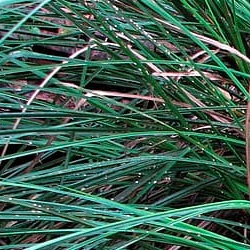
Lemon Grass (Nimbu Ghaans)
Lemon Grass contains essential oils, vitamins, and minerals such as potassium, zinc, calcium, iron, manganese, copper, and magnesium. Lemon grass has anti-oxidant, antimicrobial, and anti-fungal properties. It is frequently used in herbal teas.
Mint (Pudina)
Like many other herbs, mint leaves are rich in essential oils, vitamins, electrolytes, and minerals. Mint leaves are high on anti-oxidants and help in controlling blood pressure and blood cholesterol.

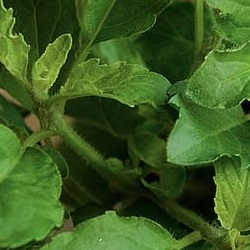
Indian Basil (Tulsi)
Tulsi is known to have antimicrobial, anti-inflammatory, anti-diabetic, adaptogenic, hepato-protective, anti-carcinogenic, and radioprotective properties. Traditional medical practitioners throughout India, use it for the treatment of bronchitis, bronchial asthma, malaria, diarrhea, dysentery, skin diseases, arthritis, painful eye diseases, chronic fever, insect bite, etc.
Turmeric (Haldi)
Turmeric contains essential oils, fatty oils and curcuminoids, and omega-3 fatty acids. Turmeric’s anti-oxidant, anti-bacterial, anti-inflammatory, anti-fungal, anti-viral, and anti-tumor properties counteract several disorders.
Turmeric can be used as a general tonic and stimulant, in the treatment of cough, cold, sore throat, asthma, arthritis, wound healing, and chronic ailments such as cardiovascular, degenerative, infective, and inflammatory disorders as well as cancers.

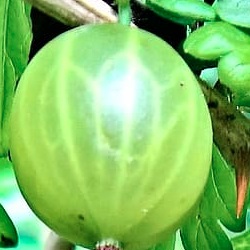
Gooseberry (Amla)
Indian gooseberry is a rich source of vitamin C. Gooseberry has antioxidant properties. It helps build immunity against infectious diseases.
These herbs and spices are only provided to make you aware of the various “medicines” that may be found in our kitchens and which might aid in your recovery.
There are more herbs and spices out there with equally beneficial properties, so this list is by no means exhaustive. To learn more about these herbs and spices, speak with your dietician or nutritionist.
